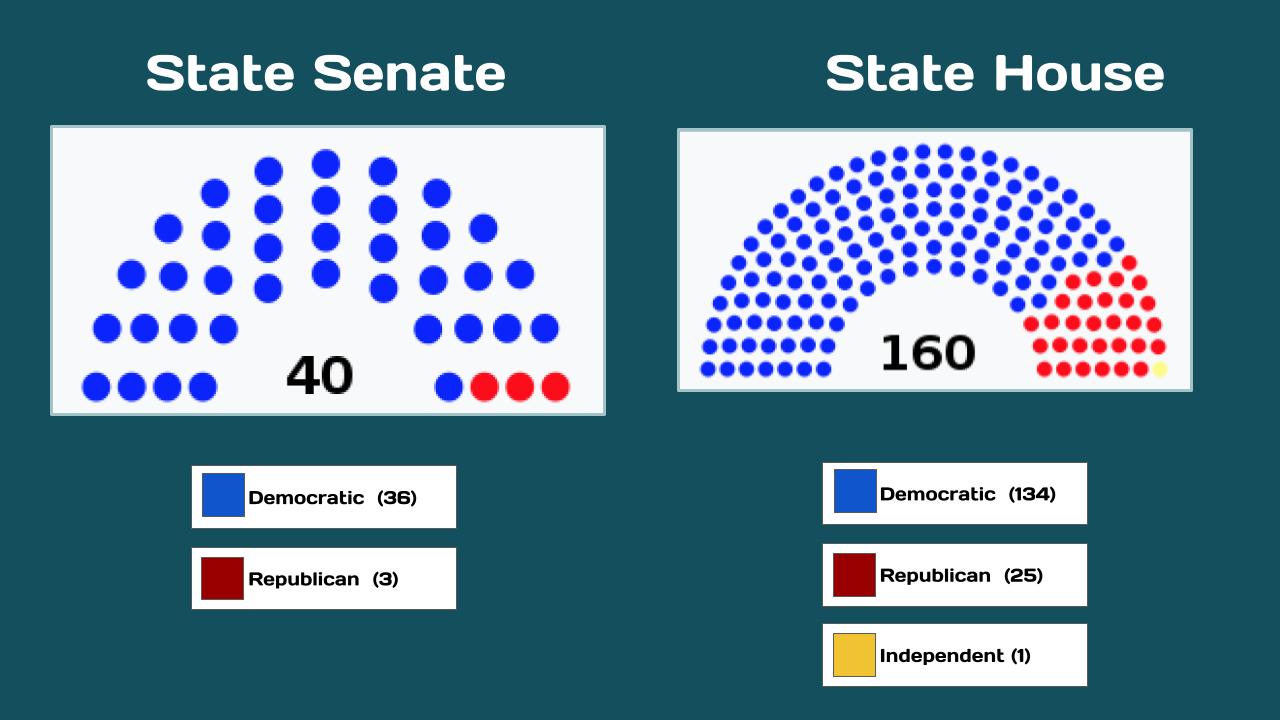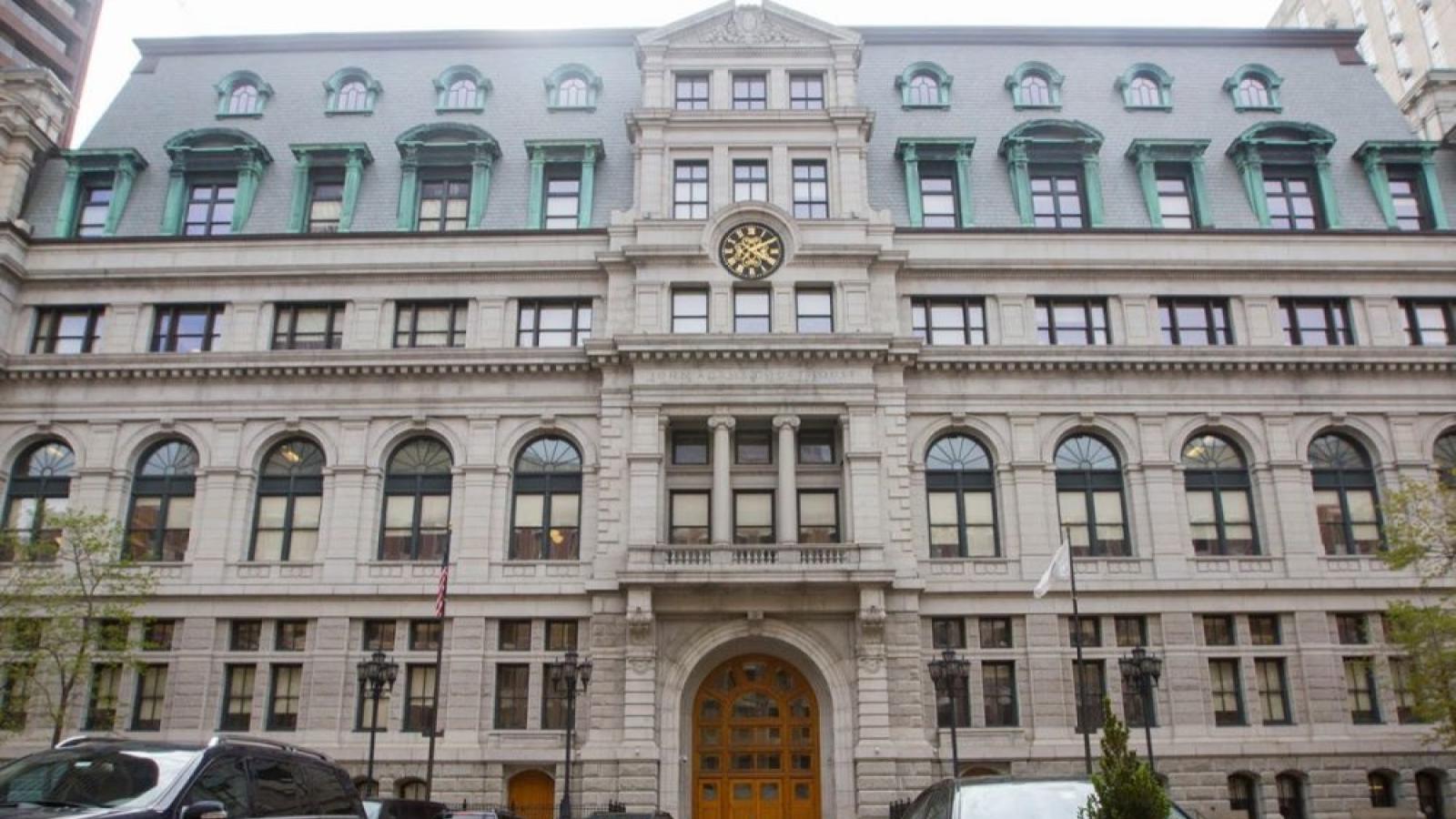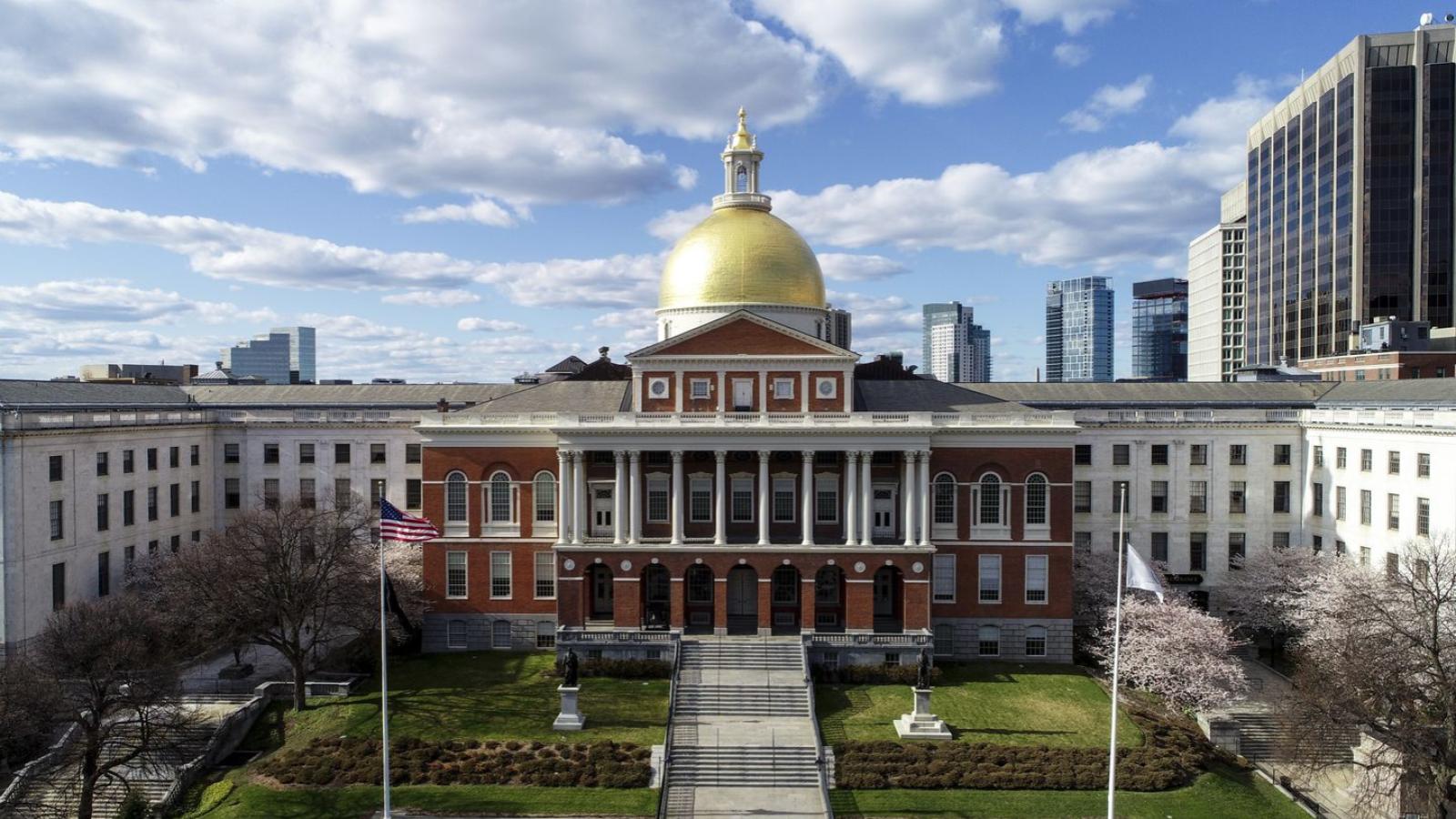The Massachusetts General Court (formally styled the General Court of Massachusetts) is the state legislature of the Commonwealth of Massachusetts. The name “General Court” is a hold-over from the earliest days of the Massachusetts Bay Colony, when the colonial assembly, in addition to making laws, sat as a judicial court of appeals. Before the adoption of the state constitution in 1780, it was called the Great and General Court, but the official title was shortened by John Adams, author of the state constitution. It is a bicameral body. The upper house is the Massachusetts Senate which is composed of 40 members. The lower body, the Massachusetts House of Representatives, has 160 members. Until 1978, it had 240 members. It meets in the Massachusetts State House on Beacon Hill in Boston.
The current President of the Senate is Karen Spilka, and the Speaker of the House is Ronald Mariano. Since 1959, Democrats have controlled both houses of the Massachusetts General Court, often by large majorities. The Democrats enjoyed veto-proof supermajorities in both chambers for part of the 1990s (i.e., enough votes to override vetoes by a governor) and also currently hold supermajorities in both chambers.
State Senators and Representatives both serve two-year terms. There are no term limits; a term limit was enacted by initiative in Massachusetts in 1994, but in 1997 this was struck down by the Massachusetts Supreme Judicial Court, which ruled that it was an unconstitutional attempt to provide additional qualifications for office by statute, rather than constitutional amendment.
The legislature is a full-time legislature, although not to the extent of neighboring New York or some other states.
Source: Wikipedia
OnAir Post: MA General Court




